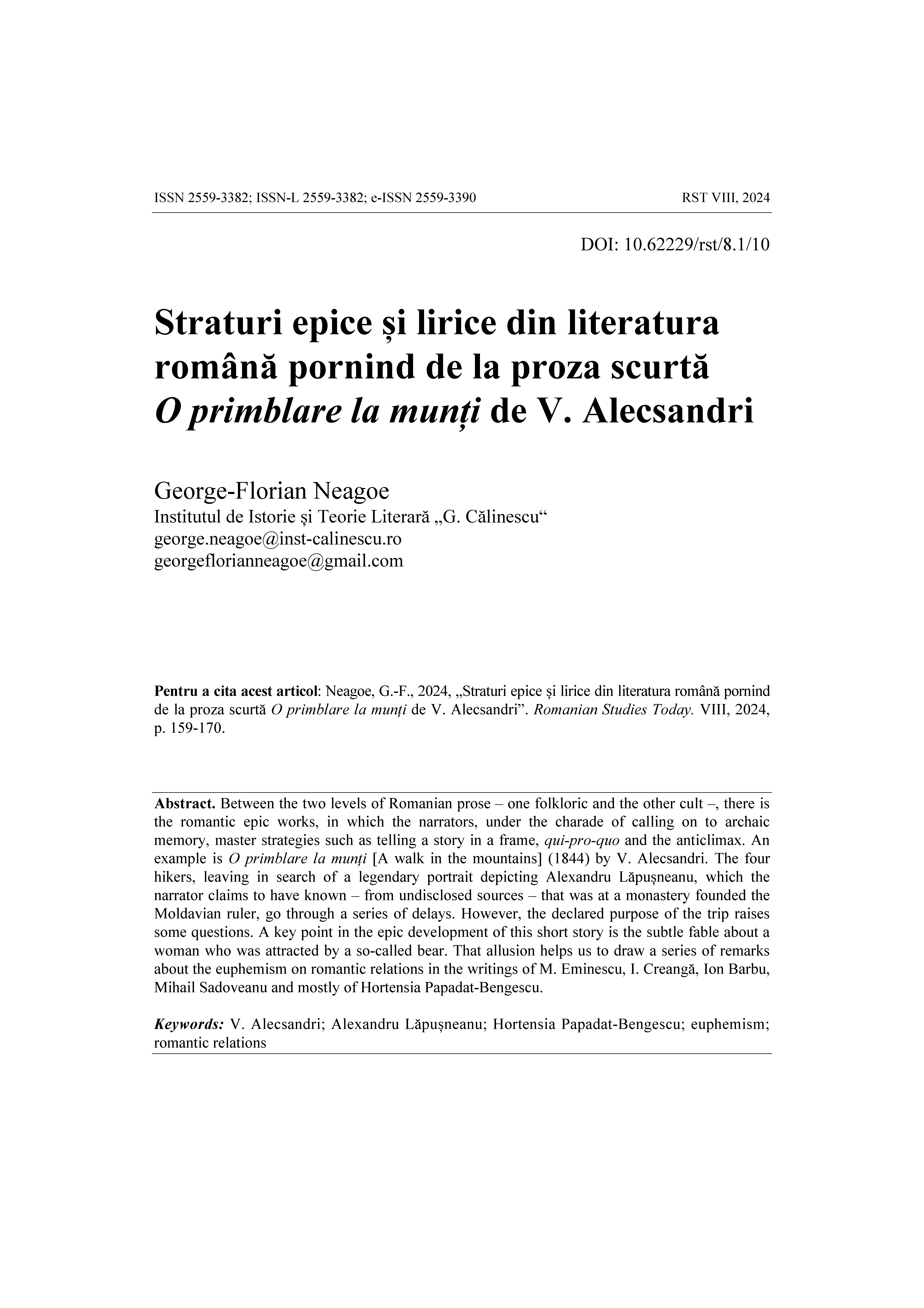Straturi epice și lirice din literatura română pornind de la proza scurtă O primblare la munți de V. Alecsandri
DOI:
https://doi.org/10.62229/rst/8.1/10Keywords:
V. Alecsandri, Alexandru Lăpușneanu, Hortensia Papadat-Bengescu, euphemism, romantic relationsAbstract
Between the two levels of Romanian prose – one folkloric and the other cult –, there is the romantic epic works, in which the narrators, under the charade of calling on to archaic memory, master strategies such as telling a story in a frame, qui-pro-quo and the anticlimax. An example is O primblare la munți [A walk in the mountains] (1844) by V. Alecsandri. The four hikers, leaving in search of a legendary portrait depicting Alexandru Lăpușneanu, which the narrator claims to have known – from undisclosed sources – that was at a monastery founded the Moldavian ruler, go through a series of delays. However, the declared purpose of the trip raises some questions. A key point in the epic development of this short story is the subtle fable about a woman who was attracted by a so-called bear. That allusion helps us to draw a series of remarks about the euphemism on romantic relations in the writings of M. Eminescu, I. Creangă, Ion Barbu, Mihail Sadoveanu and mostly of Hortensia Papadat-Bengescu.





